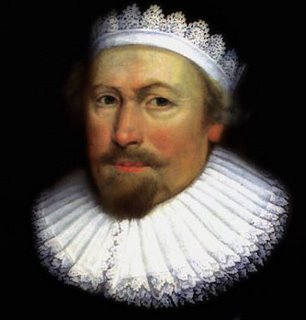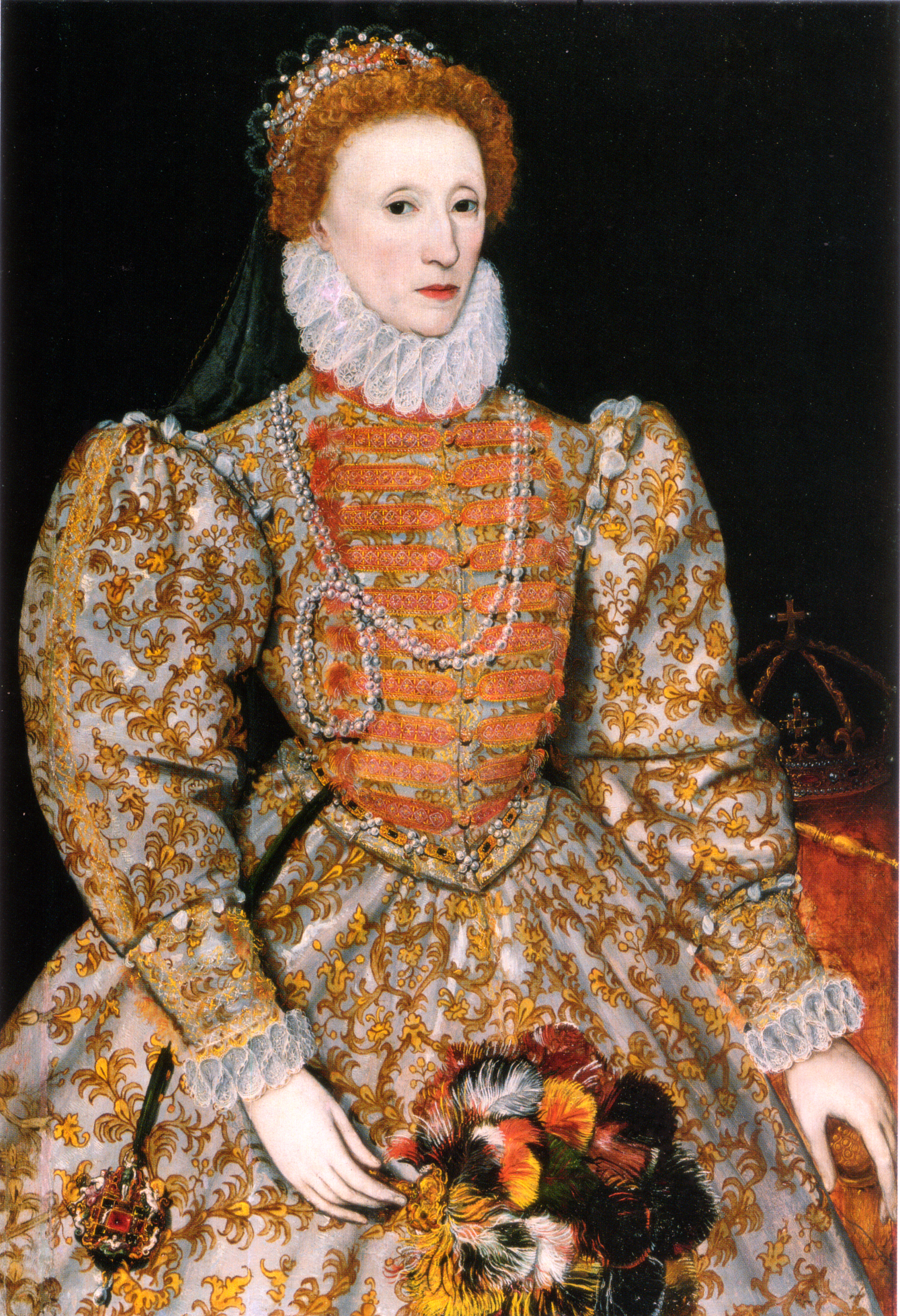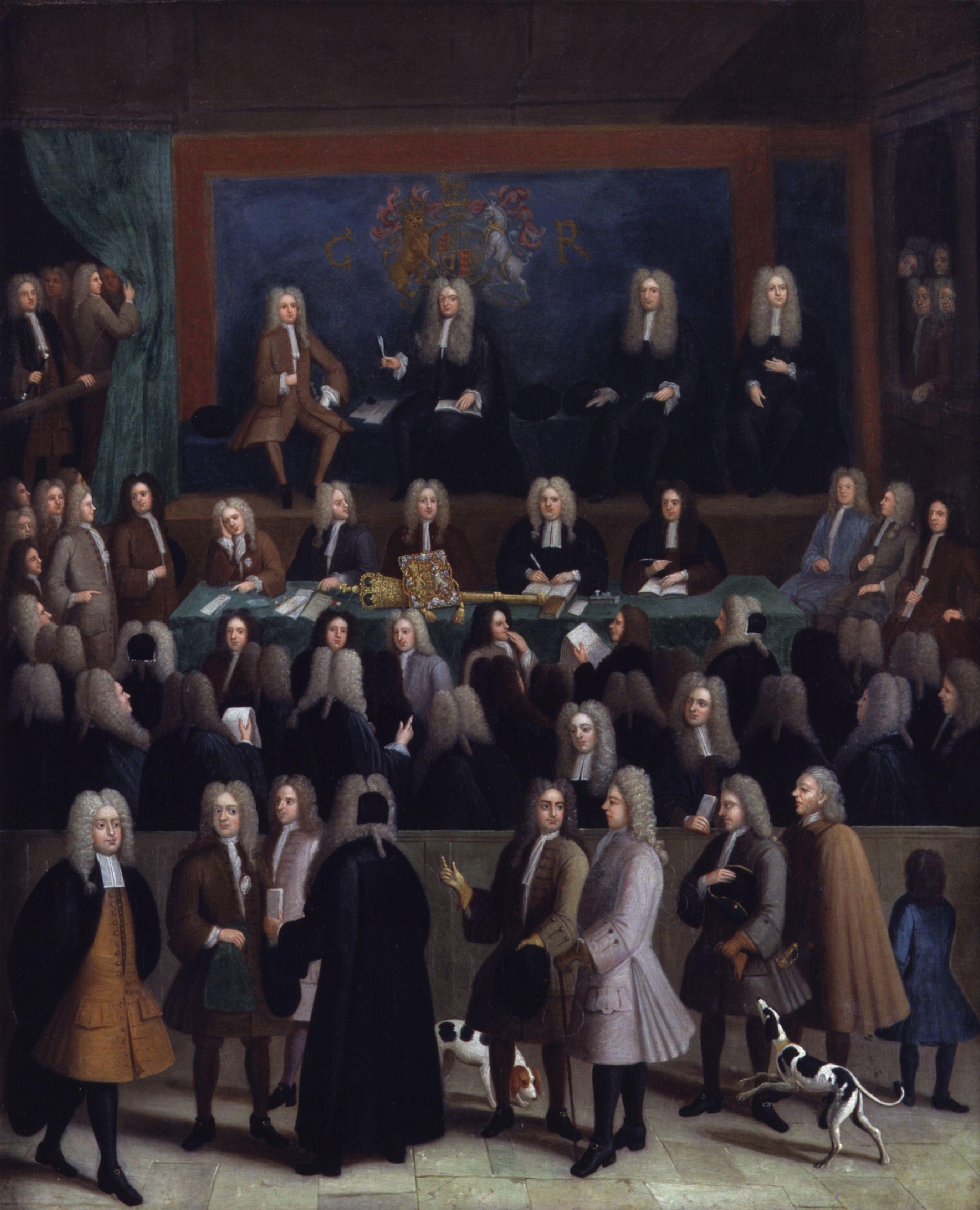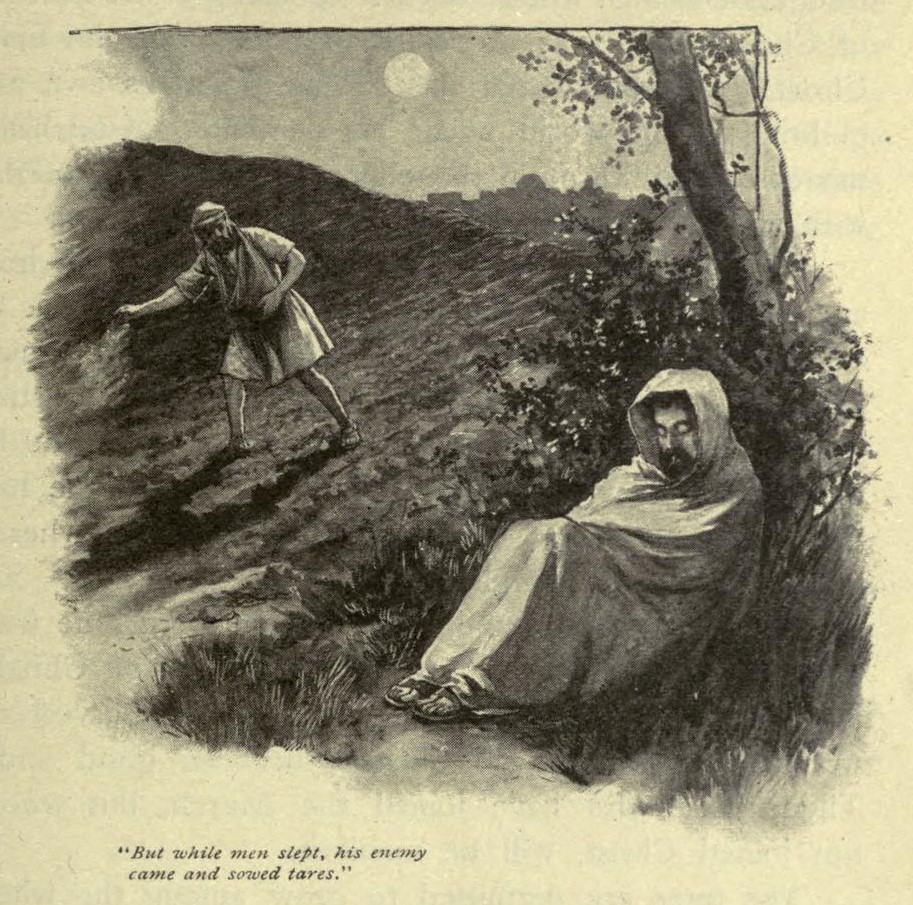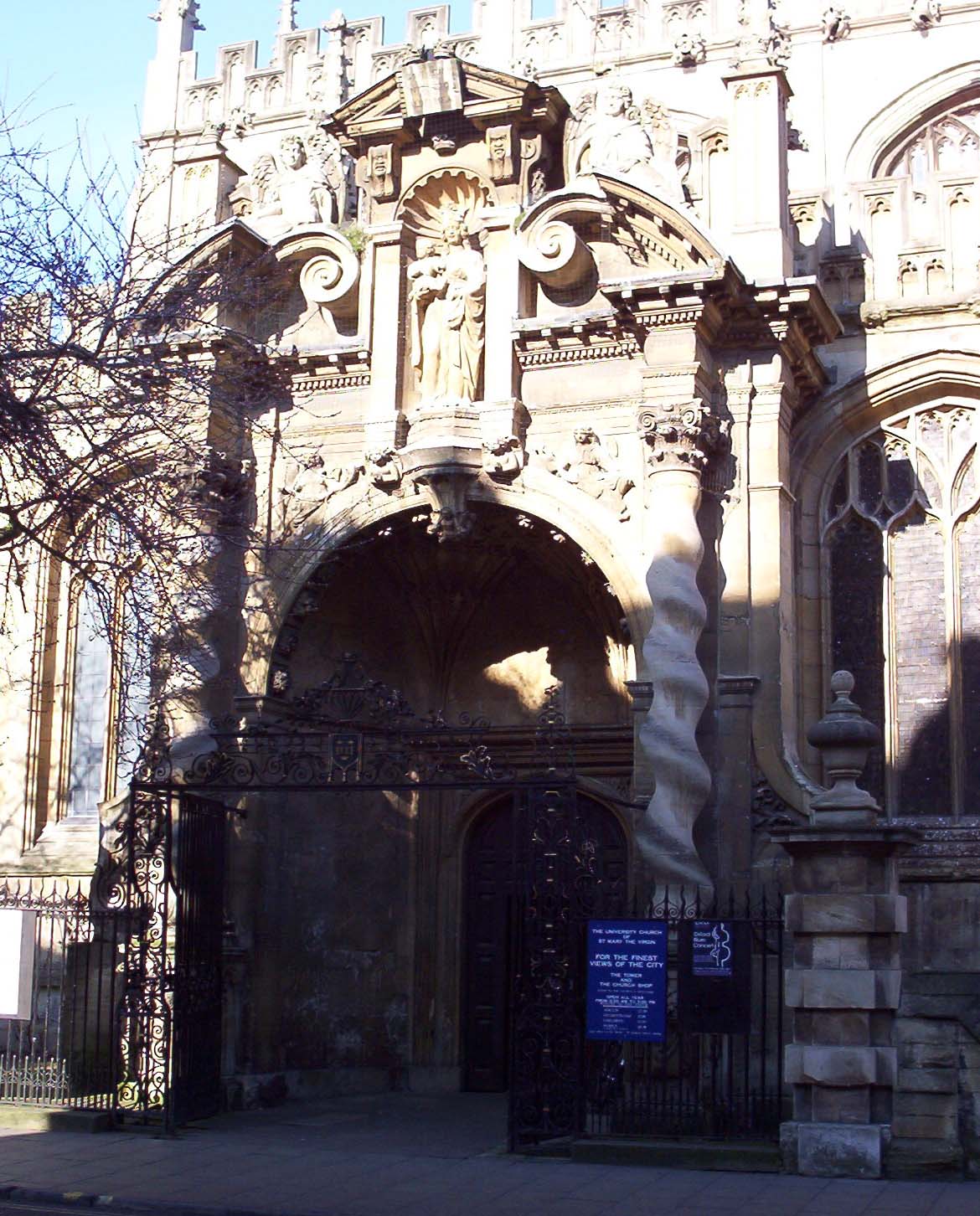|
The Feoffees For Impropriation
The Feoffees for impropriations was an unincorporated organization dedicated to advancing the cause of Puritanism in England. It was formally in existence from 1625 to 1633. Background The Elizabethan Religious Settlement established an uneasy truce between Catholics and Protestants that brought the English Reformation to a conclusion and shaped the theology and liturgy of the Church of England. It was a compromise that was not completely satisfactory to either party. During the reign of James I, Puritanism was neither officially tolerated nor actively suppressed. With the succession of Charles I and the increasing power of William Laud, greater prominence was given to the requirement for adherence to the doctrine and liturgy of the established church. Puritans regarded this as a direct attack and responded by various overt and covert moves to resist the increasing Arminianism of the Church of England. In 1626, the York House Conference. chaired by the Duke of Buckingham, was held ... [...More Info...] [...Related Items...] OR: [Wikipedia] [Google] [Baidu] |
Elizabethan Religious Settlement
The Elizabethan Religious Settlement is the name given to the religious and political arrangements made for England during the reign of Elizabeth I (1558–1603). The settlement, implemented from 1559 to 1563, marked the end of the English Reformation. It permanently shaped the Church of England's Anglican doctrine, doctrine and liturgy, laying the foundation for the unique identity of Anglicanism. When Elizabeth inherited the throne, England was bitterly divided between Catholics and Protestants as a result of various religious changes initiated by Henry VIII, Edward VI and Mary I. Henry VIII had broken from the Catholic Church and the authority of the Pope Clement VII, Pope, becoming the supreme head of the Church of England. During Edward's reign, the Church of England adopted a Reformed tradition, Reformed theology and liturgy. In Mary's reign, these religious policies were reversed, England was re-united with the Catholic Church and Protestantism was suppressed. The Eliza ... [...More Info...] [...Related Items...] OR: [Wikipedia] [Google] [Baidu] |
Letters Patent
Letters patent (plurale tantum, plural form for singular and plural) are a type of legal instrument in the form of a published written order issued by a monarch, President (government title), president or other head of state, generally granting an office, right, government-granted monopoly, monopoly, title or status to a person or corporation. Letters patent can be used for the creation of corporations, government offices, to grant city status or heraldry, coats of arms. Letters patent are issued for the appointment of representatives of the Crown, such as governors and governor-general, governors-general of Commonwealth realms, as well as appointing a Royal Commission. In the United Kingdom, they are also issued for the creation of peers of the realm. A particular form of letters patent has evolved into the modern intellectual property patent (referred to as a utility patent or design patent in United States patent law) granting exclusive rights in an invention or design. In ... [...More Info...] [...Related Items...] OR: [Wikipedia] [Google] [Baidu] |
History Of The Puritans Under Charles I
Under Charles I, the Puritans became a political force as well as a religious tendency in the country. Opponents of the royal prerogative became allies of Puritan reformers, who saw the Church of England moving in a direction opposite to what they wanted, and objected to increased Catholic influence both at Court and (as they saw it) within the Church. After the First English Civil War political power was held by various factions of Puritans. The trials and executions of William Laud and then King Charles were decisive moves shaping British history. While in the short term Puritan power was consolidated by the Parliamentary armed forces and Oliver Cromwell, in the same years, the argument for theocracy failed to convince enough of the various groupings, and there was no Puritan religious settlement to match Cromwell's gradual assumption of dictatorial powers. The distinctive formulation of Reformed theology in the Westminster Assembly would prove to be its lasting legacy. In ... [...More Info...] [...Related Items...] OR: [Wikipedia] [Google] [Baidu] |
Incumbent (ecclesiastical)
In English ecclesiastical law, the term incumbent refers to the holder of a Church of England parochial charge or benefice. The term "benefice" originally denoted a grant of land for life in return for services. In church law, the duties were spiritual (" spiritualities") and some form of assets to generate revenue (the "temporalities") were permanently linked to the duties to ensure the support of the office holder. Historically, once in possession of the benefice, the holder had lifelong tenure unless he failed to provide the required minimum of spiritual services or committed a moral offence. With the passing of the "Pastoral Measure 1968" and subsequent legislation, this no longer applies, and many ancient benefices have been joined into a single new one. At one time, an incumbent might choose to enjoy the income of the benefice and appoint an assistant curate to discharge all the spiritual duties of the office at a lesser salary. This was a breach of the canons of 1604, bu ... [...More Info...] [...Related Items...] OR: [Wikipedia] [Google] [Baidu] |
Robert Holborne
Sir Robert Holborne (died 1647) was an English lawyer and politician, of Furnival's Inn and Lincoln's Inn (where he was bencher and reader in English law). He acted, along with Oliver St John, as co-counsel for John Hampden in the ship money case. He sat in the House of Commons between 1640 and 1642 and supported the Royalist cause in the English Civil War. He was attorney-general to the Prince of Wales, being knighted in 1643. He also published legal tracts. Biography Holborne was the son of Nicholas Holbone of Chichester. His mother was, perhaps, Anne, sister of John Lane. Holborne was married (1630-1633) to the Lady Anne Dudley, granddaughter of the famous Earl of Leicester. Lady Anne was one of the abandoned daughters and co-heirs of Sir Robert Dudley, formally of Kenilworth Castle, Warwickshire. It has been suggested this relationship may have influenced his initial anti-Court reputation. He was trained for the law, as the custom then was, at Furnival's Inn, before procee ... [...More Info...] [...Related Items...] OR: [Wikipedia] [Google] [Baidu] |
William Lenthall
William Lenthall (1591–1662) was an English politician of the English Civil War, Civil War period. He served as Speaker of the House of Commons (United Kingdom), Speaker of the House of Commons for a period of almost twenty years, both before and after the execution of Charles I of England, King Charles I. He is best remembered for his defiance of the king on 4 January 1642 when Charles entered the chamber of the House of Commons, supported by 400 armed men, in an attempt to seize Five Members, five members whom he accused of treason. When Charles asked Lenthall where the five were, Lenthall famously replied "I have neither eyes to see nor tongue to speak in this place but as this House is pleased to direct me". It was the first time in English history that a speaker of the House of Commons had declared his allegiance to the liberty of parliament rather than the will of the monarch. Early life Lenthall was born in Henley-on-Thames, Oxfordshire, the second son of William Lenth ... [...More Info...] [...Related Items...] OR: [Wikipedia] [Google] [Baidu] |
Exchequer Of Pleas
The Exchequer of Pleas, or Court of Exchequer, was a court that dealt with matters of equity (law), equity, a set of legal principles based on natural law and Common law#History, common law in England and Wales. Originally part of the , or King's Council, the Exchequer of Pleas split from the in the 1190s to sit as an independent central court. The Court of Chancery's reputation for tardiness and expense resulted in much of its business transferring to the Exchequer. The Exchequer and Chancery, with similar jurisdictions, drew closer together over the years until an argument was made during the 19th century that having two seemingly identical courts was unnecessary. As a result, the Exchequer lost its equity jurisdiction. With the Judicature Acts, the Exchequer was formally dissolved as a judicial body by an Order in Council on 16 December 1880. The Exchequer's jurisdiction at various times was common law, equity or both. Initially a court of both common law and equity, it lost ... [...More Info...] [...Related Items...] OR: [Wikipedia] [Google] [Baidu] |
William Noy
William Noy (1577 – 9 August 1634) was an English jurist. He was born on the family estate of Pendrea in St Buryan, Cornwall. He left Exeter College, Oxford, without taking a degree, and entered Lincoln's Inn in 1594. From 1603 until his death he was elected, with one exception, to each parliament, sitting invariably for a constituency of his native county. For several years his sympathies were in antagonism to the court party, yet every commission that was appointed numbered Noy among its members, and even those who were opposed to him in politics acknowledged his learning. A few years before his death he changed political allegiance, went over to the side of the court, and in October 1631 he was created Attorney-general, but was never knighted. It was through his advice that the impost of ship money was levied, resulting in a controversy that helped trigger the English Civil War. Noy suffered from stones, and died in great pain; he was buried at New Brentford Brent ... [...More Info...] [...Related Items...] OR: [Wikipedia] [Google] [Baidu] |
Parable Of The Tares
The Parable of the Weeds or Tares (KJV: ''tares'', Weymouth New Testament, WNT: ''darnel'', Douay–Rheims Bible, DRB: ''cockle'') is a parables of Jesus, parable of Jesus which appears in . The parable relates how servants eager to pull up weeds were warned that in so doing they would root out the wheat as well and were told to let both grow together until the harvest. Later in Matthew, the weeds are identified with "the children of Satan, the evil one", the wheat with "the children of the Kingdom of heaven (Gospel of Matthew), Kingdom", and the harvest with "the end of the age". A shorter, compressed version of the parable is found without any interpretation in the Biblical apocrypha, apocryphal Gospel of Thomas. Narrative The parable in the Gospel of Matthew goes as follows: Analysis The word translated "tares" in the King James Version is (''zizania''), plural of (''zizanion''). This word is thought to mean Lolium temulentum, darnel (''Lolium temulentum''), a ryegrass whic ... [...More Info...] [...Related Items...] OR: [Wikipedia] [Google] [Baidu] |
University Church Of St Mary The Virgin
The University Church of St Mary the Virgin (St Mary's or SMV for short) is an Anglican church in Oxford situated on the north side of the High Street. It is the centre from which the University of Oxford grew and its parish consists almost exclusively of university and college buildings. Overview St Mary's possesses an eccentric Baroque porch, designed by Nicholas Stone, facing High Street, and a spire which is claimed by some church historians to be one of the most beautiful in England.Sherwood, Jennifer, ''A guide to the Churches of Oxfordshire'' pp. 149–151 (publ. Robert Dugdale in association with Oxfordshire Historic Churches Trust 1989) . Section reference for Architecture Radcliffe Square lies to the north and to the east is the southern end of Catte Street. The 13th-century tower is open to the public for a fee and provides good views across the heart of the historic university city, especially Radcliffe Square, the Radcliffe Camera, Brasenose College, Oxford and A ... [...More Info...] [...Related Items...] OR: [Wikipedia] [Google] [Baidu] |
University Don
A don is a fellow or tutor of a college or university, especially traditional collegiate universities such as Oxford and Cambridge in England and Trinity College Dublin in Ireland. The usage is also found in Canada and in the United States. Like the term '' don'' used for Roman Catholic priests, the term ''don'' derives from the Latin ''dominus'', meaning "lord", and is a historical remnant of Oxford and Cambridge having started as ecclesiastical institutions in the Middle Ages. The term ''don'' is also used for schoolmasters at Winchester College, where as well as the term generally meaning "teacher", there are also "Div Dons", form masters, and "House Dons", housemasters; and at Radley College, another boys-only boarding school modelled after Oxford colleges of the early 19th century. At some universities in Canada, such as the University of King's College and the University of New Brunswick, a don is the senior head of a university residence. At these institutions, a do ... [...More Info...] [...Related Items...] OR: [Wikipedia] [Google] [Baidu] |
Magdalen College, Oxford
Magdalen College ( ) is a Colleges of the University of Oxford, constituent college of the University of Oxford. It was founded in 1458 by Bishop of Winchester William of Waynflete. It is one of the wealthiest Oxford colleges, as of 2022, and one of the strongest academically, setting the record for the highest Norrington Table, Norrington Score in 2010 and topping the table twice since then. It is home to several of the university's distinguished Chair (academic), chairs, including the Serena Professor of Italian#Serena Professors at Oxford, Agnelli-Serena Professorship, the Sherardian Professor of Botany, Sherardian Professorship, and the four Waynflete Professorships. The large, square Magdalen Tower is an Oxford landmark, and it is a tradition, dating to the days of Henry VII of England, Henry VII, that the college choir sings from the top of it at 6 a.m. on May Morning. The college stands next to the River Cherwell and the University of Oxford Botanic Garden. Within i ... [...More Info...] [...Related Items...] OR: [Wikipedia] [Google] [Baidu] |
